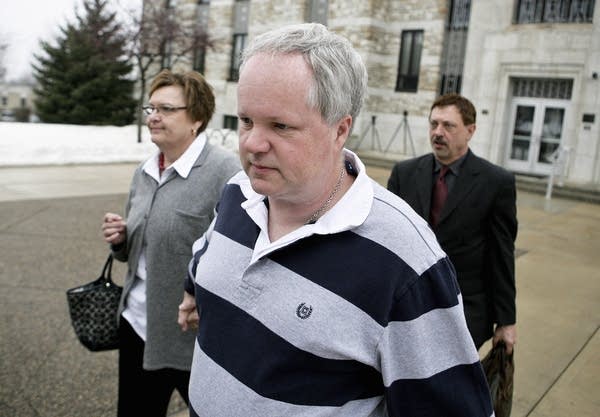Appeals Court upholds nurse's aiding suicide conviction
Go Deeper.
Create an account or log in to save stories.
Like this?
Thanks for liking this story! We have added it to a list of your favorite stories.

The Minnesota Court of Appeals on Tuesday affirmed the convictions of a former nurse who scanned online chat rooms for suicidal people then, feigning compassion, gave a British man and a young woman in Canada instructions on how to kill themselves.
William Melchert-Dinkel, 49, of Faribault, acknowledged that what he did was morally wrong but argued he had merely exercised his right to free speech and that the Minnesota law used to convict him in 2011 of aiding suicide was unconstitutional.
The appeals court disagreed, saying the First Amendment does not bar the state from prosecuting someone for "instructing (suicidal people on) how to kill themselves and coaxing them to do so."
Melchert-Dinkel's attorney, Terry Watkins, was not immediately available for comment.
Turn Up Your Support
MPR News helps you turn down the noise and build shared understanding. Turn up your support for this public resource and keep trusted journalism accessible to all.
Court documents show Melchert-Dinkel searched online for depressed people then, posing as a female nurse, offered step-by-step instructions on how they could kill themselves.
Melchert-Dinkel was convicted last year of two counts of aiding suicide in the deaths of 32-year-old Mark Drybrough, of Coventry, England, who hanged himself in 2005; and 18-year-old Nadia Kajouji, of Brampton, Ontario, who jumped into a frozen river in 2008.
He was sentenced to more than six years in prison but the terms of his parole meant he would only be imprisoned for about a year. His sentence was postponed pending his appeal, but at the time of sentencing, he was told that if his convictions were upheld, he'd have seven days to report to jail.
In arguing to overturn the conviction, Watkins said his client didn't talk anyone into suicide but instead offered emotional support to two people who had already decided to take their lives.
Assistant Rice County Attorney Benjamin Bejar had argued that Melchert-Dinkel wasn't advocating suicide in general, but had a targeted plan to lure people to kill themselves. Prosecutors have said he convinced his victims to do something they might not have done without him.
Bejar said Tuesday that prosecutors were pleased with the decision.
In a statement read at his sentencing last year, Melchert-Dinkel said he was sorry for his role in the suicides and that he realized he had rejected a unique opportunity to talk his victims out of killing themselves.
Melchert-Dinkel's nursing license was revoked in 2009.




